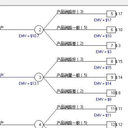Hypoglycemia enhances the expression of mRNA encoding beta-amyloid precursor protein in rat primary cortical astroglial cells.
Avainsanat
Abstrakti
Deposition of beta-amyloid (A beta) is a characteristic feature of the pathology of Alzheimer's disease (AD). Since glucose metabolism and the consequential ATP production are depressed in the temporal and parietal regions of the cortex in patients with AD, we designed the present study to investigate the possible role of hypometabolism in the pathogenesis of AD. We incubated rat primary cortical astroglial cells for 2 h to 4 days in a media deprived of 95% of its glucose and assessed the expression and alternative splicing of the mRNA that encoding beta-amyloid precursor protein (APP) using RT-PCR. Hypoglycemia caused a time-dependent increase in APP mRNA expression, which reaches a peak level of 173.2% of control expression (P < 0.05) at 24 h of hypoglycemia. Noteworthy, hypoglycemia favors the alternative splicing that includes the exon 7 segment, which encodes a Kunitz-type serine protease inhibitor domain. This study demonstrates that hypoglycemia increases APP mRNA expression in astroglial cells and processing of APP mRNA to a form that may encourage A beta deposits in AD. These data suggest that the observed hypometabolism in AD may contribute to its deposition of A beta in affected brain regions.


